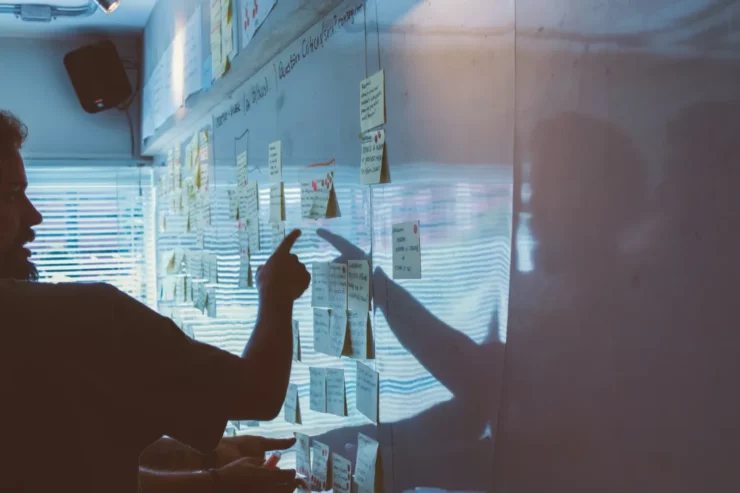Economics and Business
Economics and Business is a relatively young academic discipline. At most universities, it has only been around for less than a hundred years. Yet the central questions of the discipline are themselves as old as humanity itself. These questions concern making choices in generating and distributing wealth, which still occupy a central place in our modern society. Moreover, the creation and distribution of wealth have taken on much more complex forms over the centuries, making the associated problems correspondingly more difficult. It is therefore not without reason that one in six university students is associated with this discipline.
Especially in the past 150 years, prosperity has increased spectacularly, at least in our part of the world. Global GDP has increased no less than sixtyfold in that period. Moreover, half of that increase has been achieved since the year 2000. This is partly due to technological progress, population growth and an increase in the general level of education, but certainly also due to the application of specific knowledge from Economics and Business.

The latter makes it possible, among other things, to produce more efficiently and to serve the rapidly growing number of consumers around the world in the best possible way. It also helps to organize labor more effectively and facilitate financing on a large scale. It also inspires successful entrepreneurship and leads to new ways of sharing risks in large innovative projects.
But the well-oiled prosperity machine that has been created as a result does not only have advantages. We are confronted with the limits to our growth in various ways. The enormous increase in prosperity has therefore raised new fundamental questions. It is desperately needed to adapt our existing economic system, but how does one achieve this in a responsible way? This challenge occupies an important place in the current research and education of Economics and Business. It leads to new questions, while many old answers no longer apply. This makes the development and dissemination of new knowledge crucial.
Economics and Business is therefore investigating ways to interpret prosperity more broadly and to take much more account of sustainability. Research and education also pay more attention to the fair distribution of wealth. It also investigates how institutions can better safeguard the common interest in the economy. By confronting such questions, the field comes into closer contact with other disciplines, especially in SSH. The resulting common academic and societal task is at the same time urgent, complex and inspiring for both scientists and students.

Deans Economics and Business
Deans of Economics and Business (DEB) is the consultative body of the deans of the faculties of Economics and Business at Dutch universities. DEB has a regular meeting every two months and also has additional meetings when required, usually online.
An important starting point for the current collaboration was the DEB Impact Agenda (2023). It identifies five major societal challenges that should inspire research and education in the field, namely:
- A sustainable world
- A fair world
- Balanced institutions
- A healthy world
- Future-proof digitisation
In connection with this, the number of joint projects within DEB has increased. Preferably, these projects are carried out in collaboration with partners from the public and private sector. In this way, DEB tries to draw attention to the social transition outlined above and to the role that knowledge from Economics and Business can play in this.
The core of the DEB meetings therefore consists of the supervision of the joint projects and decision-making on follow-up steps. In addition to being a classic consultative body, DEB is thus also a coordinating body for strategic projects within the discipline. In the discussion about these projects, the connection with the SSH council and the relationship to developments in the other SSH disciplines are given due attention during each meeting.
Encouraging impact
Examples of initiatives taken to promote such visibility and impact include the creation of the Impact Agenda and the annual Impact Forum. In the Impact Agenda, DEB identified five major societal challenges, three years ago:
- A sustainable world
- A fair world
- Balanced institutions
- A healthy world
- Future-proof digitisation
The Impact Agenda also describes how knowledge from Economics & Business can contribute to achieving these goals, partly in collaboration with other disciplines and other societal stakeholders. In line with the five social priorities, the Remagine Awards were also established last year, together with the Goldschmeding Foundation. That foundation’s mission is perfectly in line with DEB’s ambition. The awards are for the best master’s theses in Economics & Business, one for each of the five priorities. The winners receive a trophy and a cash prize of €5,000. In addition, Economics & Business Administration plays a role in the cross-cutting sector plan that focuses on the social consequences of digitalisation, especially with regard to the impact of digitalisation on work. Ties have also been strengthened with the trade journal Economisch Statistische Berichten (ESB), an important medium for disseminating results of scientific research in Dutch practice.

Chair
Prof. dr. Peter Verhoef (University of Groningen)
Members
Prof dr. Aukje Hassoldt (Erasmus University Rotterdam/RSM)
Prof. dr. Saskia Lavrijssen (Radboud University)
Prof. dr. Mariëlle Heijltjes (Maastricht University)
Prof. dr. Taya Bondarouk (University of Twente)
Prof. dr. Barbara Majoor (Nyenrode Business University)
Prof. dr. Marike Knoef (Tilburg University)
Prof. dr. Bart Frijns (Open University)
Prof. dr. Olaf van Vliet (Leiden University)
Prof. dr. Patrick Groenen (Erasmus Universiteit Rotterdam/ESE)
Prof. dr. Roel Beetsma (Universiteit van Amsterdam)
Prof. dr. Charles van Marrewijk (Utrecht University)
Prof. dr. Arjen van Witteloostuijn (Vrije Universiteit)
Prof. dr. Erwin Bulte (Wageningen University & Research)
Executive secretary
Alexandra van den Doel (University of Groningen)
a.c.e.van.den.doel@rug.nl


